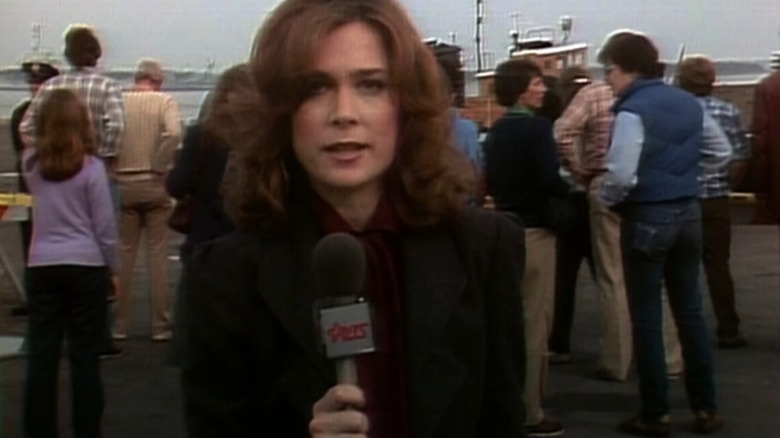Fictional narratives presented in news-bulletin format have always been a magnet for controversy. Orson Welles’ 1938 radio episode “The War of the Worlds” comes to mind, which caused widespread panic after audiences mistook it for an announcement of a real Martian invasion. Welles’ Halloween special was supposed to be an adaptation of H.G. Wells’ eponymous sci-fi novel, but the jarring nature of the format (coupled with the absence of commercial breaks) breathed false legitimacy into this fictional premise. After a 23-year-old Welles publicly apologized for the unintended panic caused by the radio episode, the news-bulletin format was severely criticized, as it was perceived as a storytelling medium that could be used to “trick” the general public.
While we need to approach such perceptions with nuance, this format has proven problematic for audiences that have disregarded repeated disclaimers attached to works of fiction. Another prominent example of such format-related outrage is when BBC1 broadcast the mockumentary television film “Ghostwatch,” whose simulated live TV format confused folks so much that it created considerable uproar. BBC received countless phone calls in the aftermath, as the phone number shown on screen (for audiences to contact and relay paranormal experiences) happened to be the channel’s standard call-in number. Despite assurances that the show was fictional, the perennially busy phone line made folks believe that this “on-air” horror show was real.
Circumstances were no different for 1983’s “Special Bulletin,” a made-for-television film broadcast on NBC, which also followed an on-air news bulletin format to convey its tense, dramatic story. In this film, news about a terrorist organization and a homemade atomic bomb created real-life nationwide panic, as the presentation of these events felt a bit too real for folks watching at home. Was such a panicked reaction warranted, and is “Special Bulletin” any good? Let’s investigate.
Special Bulletin ran disclaimers during its repeat broadcast, but to no avail
“Special Bulletin” presents its story through the fictional RBS Network, introducing tension with a well-timed “We interrupt our regular programming to bring you this Special Bulletin from RBS News.” This leads to a news coverage of terrorist activity in Charleston, South Carolina, where two news reporters are taken hostage shortly after. Long story short, an active atomic bomb threat looms in the air, while the Department of Defense frantically attempts to resolve the situation. In the climax, news report footage reveals a 23-kiloton nuclear blast that destroys the city of Charleston, leading to countless deaths and ushering in the film’s resolution.
Unfortunately, these well-shot fictional events were perceived quite literally by some viewers, who believed that the bomb explosion was real. According to a now-archived report by UPI, this conflation between fiction and reality persisted even after NBC issued repeated disclaimers about the fictional nature of the show. Countless calls were made to the police (and the broadcasters), with some expressing concern regarding the events that they believed to be real:
“I thought the whole thing was happening — the terrorists, the hostages, the nuclear bomb, everything. I still can’t believe it was a movie. It was really frightening.”
The citizen sentiment expressed above was a widespread one, as NBC-owned stations received 1,256 calls after the Sunday re-run of “Special Bulletin.” As the story situates its atomic bomb event in Charleston, the area also received a massive uptick in calls in the aftermath of the film being aired, where most callers turned out to be concerned loved ones. Things were further complicated by actual tornado warnings that were broadcast during the movie, which added to the confusion and chaos of what could be considered real.
The “Special Bulletin” incident could have discouraged other made-for-television films like “Countdown to Looking Glass,” which did not take the simulated newscast route to avoid controversy. Moreover, this 1984 film also inserted dramatic segments to make its fictional nature amply clear, which might’ve helped it appear authentic enough without causing real-life panic. While “Special Bulletin” might’ve attracted less ire if it had taken a similar route, it is still an impressive simulated newscast that underlines the strengths of the made-for-television genre.


